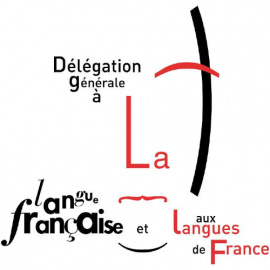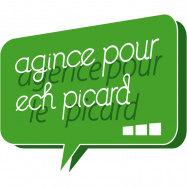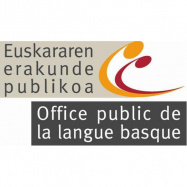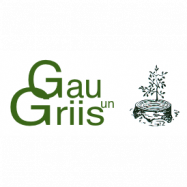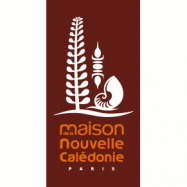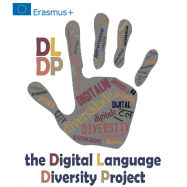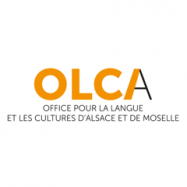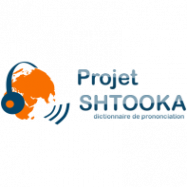LinguaLibre
Difference between revisions of "About/oc"
WikiLucas00 (talk | contribs) (Created page with "Lo Record Wizard permet l'enregistrament, la categorizacion e la publicacion dins Wikimedia Commons d'enregistraments audio o video (1 mot, 1 locucion) a partir d'un ordenado...") |
WikiLucas00 (talk | contribs) (Created page with "Per modificar las paginas del site web, se cal connectar e clicar sus « modificar ». Per ajustar de paginas, i a doas etapas : dintrar lo títol de la pagina que volètz...") |
||
| Line 34: | Line 34: | ||
Lo Record Wizard permet l'enregistrament, la categorizacion e la publicacion dins Wikimedia Commons d'enregistraments audio o video (1 mot, 1 locucion) a partir d'un ordenador o d’un telefonet intelligent. Per aquò far, vos cal connectar o crear un compte d'utilizator. La guida d'utilizator es disponibla sus la pagina d'ajuda. | Lo Record Wizard permet l'enregistrament, la categorizacion e la publicacion dins Wikimedia Commons d'enregistraments audio o video (1 mot, 1 locucion) a partir d'un ordenador o d’un telefonet intelligent. Per aquò far, vos cal connectar o crear un compte d'utilizator. La guida d'utilizator es disponibla sus la pagina d'ajuda. | ||
| − | + | Per modificar las paginas del site web, se cal connectar e clicar sus « modificar ». Per ajustar de paginas, i a doas etapas : dintrar lo títol de la pagina que volètz crear dins lo navigator, amb lo prefixe "Lingua Libre:". Un messatge prepausant de crear la pagina apareisserà. Per una modificacion importanta, vos pregam de consultar primièr la comunautat. | |
</div> | </div> | ||
</div> | </div> | ||
Revision as of 13:39, 25 November 2020
Lingua Libre es un projècte de l’associacion Wikimédia France qu’a per tòca de construsir un corpus collaboratiu multilingüe audiovisual amb una licéncia libra per : * augmentar la coneissença sus las lengas, dins las lengas e d’un biais audiovisualsul web, dins los projèctes Wikimedia projects e en defòra ; * sosténer lo desvolopament de comunautats linguisticas en linha , especialament aquelas que son pauc dotadas, minoritàrias, regionals , oralas o signadas — per ajudar aquelas comunautats a trapar en linha d’informacions e per assegurar la vitalitat la vitalitat de las lengas d’aquelas comunautats.
Cossí participar ?
Sus Lingua Libre podètz explorar e tornar utilizar d’enregistraments, contribuir al còrpus en enregistrant de mots o melhorar lo site, en concertacion amb la comunautat.
Lo Record Wizard permet l'enregistrament, la categorizacion e la publicacion dins Wikimedia Commons d'enregistraments audio o video (1 mot, 1 locucion) a partir d'un ordenador o d’un telefonet intelligent. Per aquò far, vos cal connectar o crear un compte d'utilizator. La guida d'utilizator es disponibla sus la pagina d'ajuda.
Per modificar las paginas del site web, se cal connectar e clicar sus « modificar ». Per ajustar de paginas, i a doas etapas : dintrar lo títol de la pagina que volètz crear dins lo navigator, amb lo prefixe "Lingua Libre:". Un messatge prepausant de crear la pagina apareisserà. Per una modificacion importanta, vos pregam de consultar primièr la comunautat.
Why participate?
Lingua Libre comes from the observation of several lacks on Wikimedia projects and on the web in general:
- Lack of diversity: While the web is in theory open to everyone, its content is far from representing all languages proportionally. More than 50% of websites are in English; only 301 of the world's 7000+ languages have a free encyclopedia [1], with a content that is inferior in quality and quantity to those of more endowed languages such as Wikipedia in English[1],[2]. In addition, these websites host content that broadly reflects and meets Western standards and needs through the medium of the written word, which explains and helps to perpetuate their lack of linguistic diversity.
- Lack of orality: Although languages are essentially spoken (only 4,000 of the world's 7,000 languages have a writing system)[4], knowledge sharing and communication via new information and communication technologies (NICTs) is mainly done in writing, particularly on the web, despite the rich multimedia format it allows. This mediation of the oral through the written word raises many barriers to contribution, such as the use of Unicode characters, the culture of the written word, the orthographic standardisation of the language or the literacy rate of the community.
- These lacks of diversity and orality limit the ability of Internet users to communicate and contribute online to various web platforms where they cannot find content and communities sharing their language. Among the regional minority languages that are oral or signed, they threaten in particular the poorly endowed ones, many of which are currently in danger of extinction and for whom inclusion on the web is a major challenge and opportunity.
- Indeed, of the 7000 languages in existence today, it is estimated that only 2500 will survive to the next century and only 250 (less than 5%!) will make their digital ascent — i.e. be used regularly for communication purposes in the digital space by native speakers who are comfortable on the web — a factor which is yet essential for their vitality[5]. Current initiatives by linguists and activists to document and share data, resources and content online in the languages to be preserved do not directly contribute to the development of a digitally-ascendant linguistic community of Internet users, and thus remain limited in their impact.
- Lingua Libre aims to make up for this lack of support by placing itself at the service of linguistic communities wishing to insert and promote their language into the digital space by exploring alternative means of communication to the written word, in the hope that this will free up online communication in a growing number of languages. This objective favours by its very nature regional minority languages that are poorly endowed in terms of oral or signed language, but also benefits more endowed languages that wish to highlight their oral and visual aspects. To fulfil its mission, Lingua Libre offers an online solution for mass recording, leading to the publication of a collaborative multilingual audiovisual corpus under free licence, whose vocation is information through consultation, and revitalisation by triggering the contribution of new language communities on Lingua Libre and then outside.


